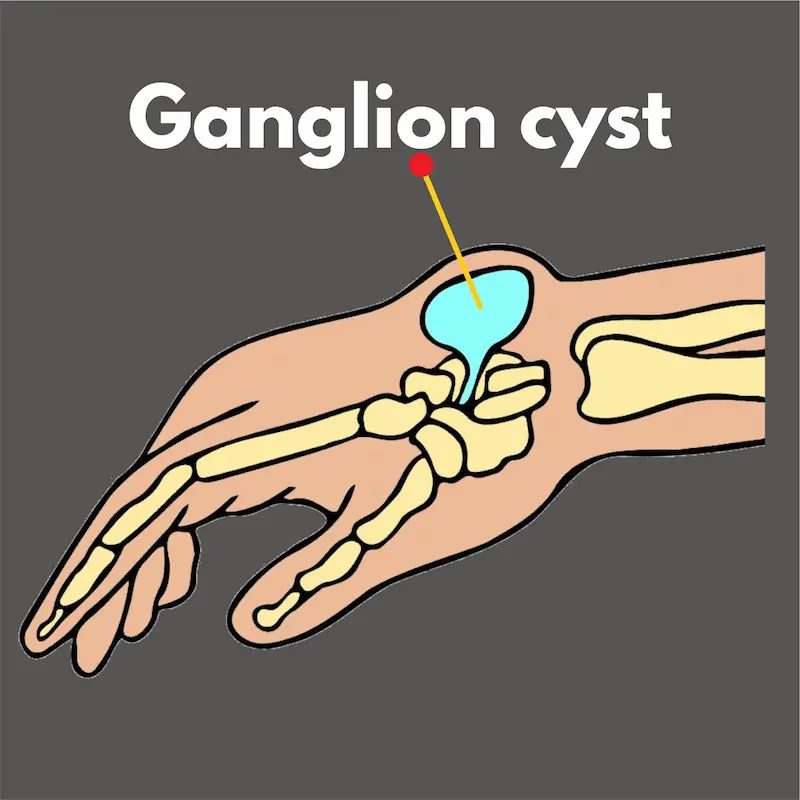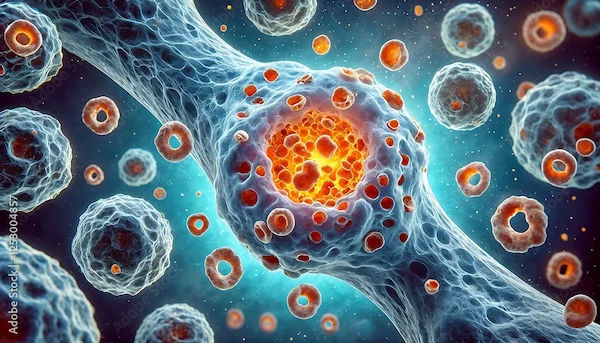Vulvar Cancer Overview and Risk Factors
Learn about vulvar cancer, including its types, symptoms and risk factors. Understand how early detection and awareness can aid in timely diagnosis and improve treatment outcomes.

Written by Dr. M L Ezhilarasan
Reviewed by Dr. Rohinipriyanka Pondugula MBBS
Last updated on 27th Aug, 2025

Introduction
Facing a cancer diagnosis can be overwhelming, but understanding the condition is the first step toward managing it effectively. Vulvar cancer, though rare, is a serious health concern that affects women. This article will guide you through the basics of vulvar cancer, its risk factors, and ways to stay informed and proactive about your health.
What Is Vulvar Cancer?
Vulvar cancer occurs when abnormal cells grow uncontrollably in the vulva, the external part of a woman’s genitalia, including the labia, clitoris, vaginal opening, and surrounding skin. While it is not as common as other gynaecological cancers (like cervical or ovarian cancer), early detection and treatment can significantly improve outcomes.
Consult a Gynaecological Oncologist for the best advice
Types of Vulvar Cancer
The most common type is squamous cell carcinoma, which develops in the thin, flat cells lining the vulva. Other rare types include:
- Melanoma (affecting pigment-producing cells)
- Adenocarcinoma (originating in glandular tissues)
- Sarcoma (developing in connective tissues)
Symptoms of Vulvar Cancer
Early-stage vulvar cancer may not always cause noticeable symptoms, but as it progresses, you might experience:
- Itching, burning, or pain in the vulvar area
- A lump, sore, or wart-like growth that doesn’t heal
- Skin changes, such as thickening, discoloration, or ulcers
- Bleeding or discharge not related to menstruation
- Pain during urination or intercourse
If you notice any of these symptoms, consult a doctor. While these signs don’t always mean cancer, getting them checked early can help rule out serious conditions.
What Causes Vulvar Cancer?
The exact cause is unknown, but certain risk factors increase the likelihood of developing it:
1. Age
Most cases occur in women over 50, particularly after menopause. However, younger women can also be affected.
2. Human Papillomavirus (HPV) Infection
HPV is a sexually transmitted virus linked to several cancers, including vulvar cancer. Some high-risk HPV strains can cause cellular changes leading to cancer over time.
3. Chronic Vulvar Skin Conditions
Conditions like lichen sclerosus (which causes thin, itchy skin) or vulvar intraepithelial neoplasia (VIN) (a precancerous condition) increase risk.
4. Smoking
Tobacco use weakens the immune system and increases vulnerability to HPV-related cancers.
5. Weakened Immune System
Women with HIV/AIDS or those taking immunosuppressive medications have a higher risk.
6. History of Other Cancers
A personal history of cervical or vaginal cancer may increase susceptibility.
How Can You Lower Your Risk?
While some risk factors (like age or genetics) can’t be changed, you can take steps to reduce your risk:
1. Get Vaccinated Against HPV
The HPV vaccine (like Gardasil) protects against high-risk strains. It’s recommended for girls and boys aged 9–26, but some adults up to 45 may also benefit.
2. Practice Safe Sex
Using condoms and limiting sexual partners reduces HPV exposure.
3. Quit Smoking
If you smoke, seek help to quit; this lowers cancer risks significantly.
4. Regular Gynaecological Check-ups
Routine pelvic exams help detect early changes in the vulva. If you have lichen sclerosus or VIN, follow your doctor’s monitoring plan.
5. Be Aware of Changes
Perform regular self-exams and report any unusual symptoms (sores, lumps, persistent itching) to your doctor promptly.
When to See a Doctor?
If you experience persistent vulvar discomfort, unusual growths, or unexplained bleeding, don’t ignore it. Early diagnosis improves treatment success.
Diagnosis May Include:
Diagnosis is done by:
- Physical examination
- Biopsy (removing a small tissue sample for testing)
- Imaging tests (like MRI or CT scans) if cancer is suspected
Treatment Options
Treatment depends on the cancer stage and may include:
- Surgery (removing the tumor or affected tissue)
- Radiation therapy (targeting cancer cells with high-energy rays)
- Chemotherapy (drugs to kill cancer cells)
Your doctor will tailor a plan based on your condition.
Final Thoughts
Vulvar cancer is rare but manageable with early detection. Knowing the symptoms, risk factors, and preventive measures empowers you to take charge of your health. If you have concerns, don’t hesitate to consult a specialist.
Consult a Gynaecological Oncologist for the best advice
Consult a Gynaecological Oncologist for the best advice

Dr. Sai Lakshmi Daayana
Gynaecological Oncologist
18 Years • MBBS, MRCOG
Hyderabad
Apollo Hospitals Jubilee Hills, Hyderabad
(200+ Patients)

Dr. Rupam Manna
Radiation Specialist Oncologist
4 Years • MBBS MD(RADIO THERAPY)
Barasat
Diab-Eat-Ease, Barasat

Dr. Sreeparna Roy
Obstetrician and Gynaecologist
8 Years • MBBS , MS (OBSTETRICS & GYNAECOLOGY), Fellowship in Infertility, Endoscopy & Ultrasonography), Fellowship in Laparoscopy & Hysteroscopy,DRM
Kolkata
Dr Utsa Basu Clinic, Kolkata
Dr. Navin Srinivasan
Gynaecological Oncologist
9 Years • MBBS, MS DNB(OBS-GYNAE), MCH (GYNAE ONCOLOGY)
Bengaluru
Apollo Clinic Mahadevapura, Bengaluru

Dr. Swati Shah
Surgical Oncologist
15 Years • DNB Surgical Oncology, certified Robotic Cancer Surgeon
Ahmedabad
Apollo Hospitals Gandhinagar, Ahmedabad
(25+ Patients)
Consult a Gynaecological Oncologist for the best advice

Dr. Sai Lakshmi Daayana
Gynaecological Oncologist
18 Years • MBBS, MRCOG
Hyderabad
Apollo Hospitals Jubilee Hills, Hyderabad
(200+ Patients)

Dr. Rupam Manna
Radiation Specialist Oncologist
4 Years • MBBS MD(RADIO THERAPY)
Barasat
Diab-Eat-Ease, Barasat

Dr. Sreeparna Roy
Obstetrician and Gynaecologist
8 Years • MBBS , MS (OBSTETRICS & GYNAECOLOGY), Fellowship in Infertility, Endoscopy & Ultrasonography), Fellowship in Laparoscopy & Hysteroscopy,DRM
Kolkata
Dr Utsa Basu Clinic, Kolkata
Dr. Navin Srinivasan
Gynaecological Oncologist
9 Years • MBBS, MS DNB(OBS-GYNAE), MCH (GYNAE ONCOLOGY)
Bengaluru
Apollo Clinic Mahadevapura, Bengaluru

Dr. Swati Shah
Surgical Oncologist
15 Years • DNB Surgical Oncology, certified Robotic Cancer Surgeon
Ahmedabad
Apollo Hospitals Gandhinagar, Ahmedabad
(25+ Patients)



